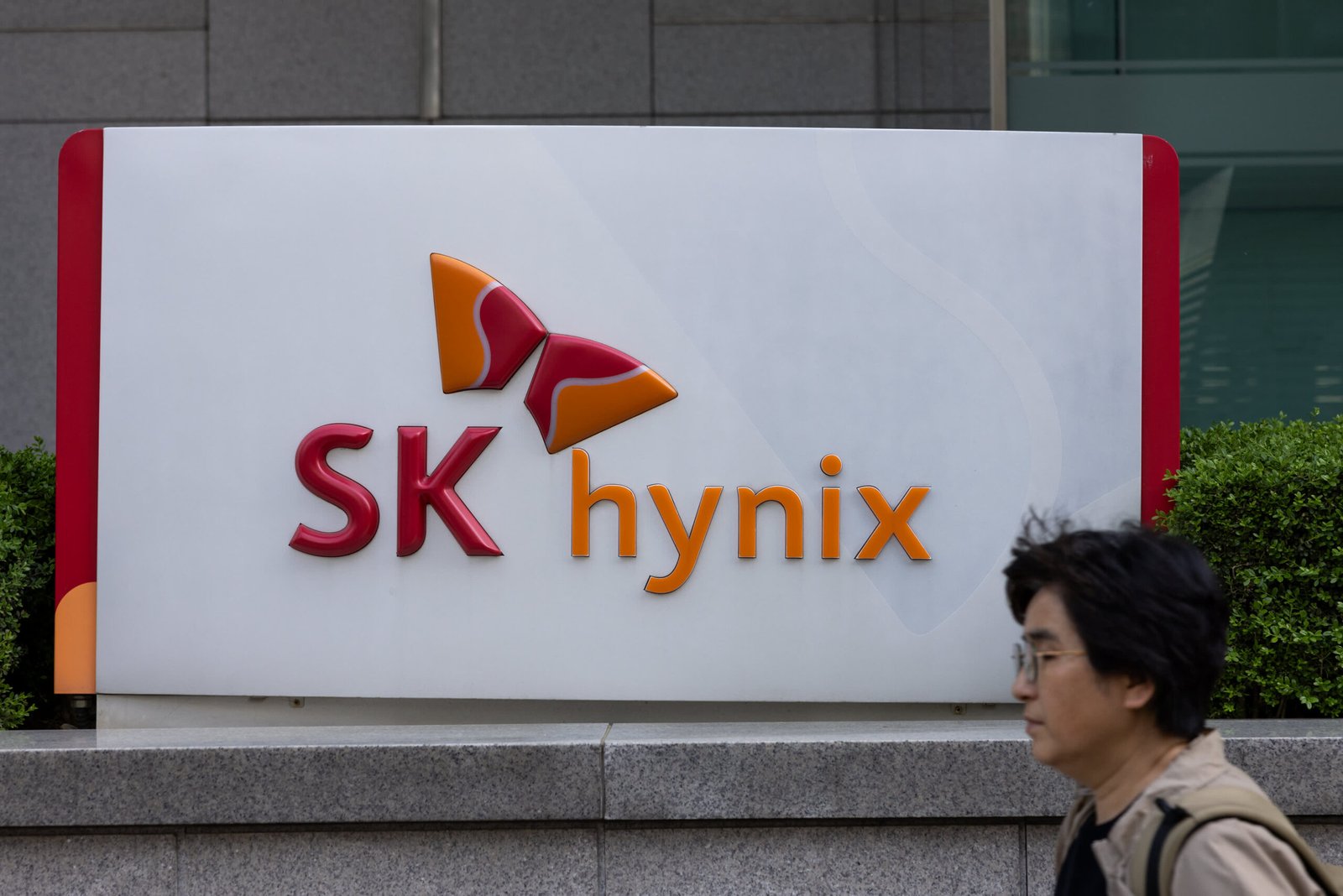SK Hynix Inc. signage at the company’s office in Seongnam, South Korea, on Monday, April 22, 2024. SK Hynix is expected to announce earnings results on April 25. Photographer: SeongJoon Cho/Bloomberg via Getty Images
Bloomberg | Bloomberg | Getty Images
South Korean memory chip maker SK Hynix on Thursday reported a net profit of 1.92 trillion South Korean won ($1.39 billion) in the first quarter, reversing a loss of 2.58 trillion won in the same period a year ago.
This was the first positive income since the third quarter of 2022, LSEG data showed. SK Hynix posted a net loss for five consecutive quarters due to a slump in the memory chip market.
First-quarter revenue reached 12.43 trillion won, up 144% from a year ago. This was the highest sales since the second quarter of 2022, according to LSEG data.
SK Hynix attributed the strong performance to an “increase in sales of AI server products, supported by its leadership in AI memory technology, including high-bandwidth memory” and efforts to increase profitability.
SK Hynix is the world’s largest memory chip maker after Samsung Electronics, supplying high-bandwidth memory chips for AI chipsets for companies like Nvidia.
The explosive demand for AI chipsets stimulated the market for high-end memory chips, from which players such as SK Hynix and Samsung Electronics benefited enormously.
Large language models like ChatGPT – which skyrocketed AI adoption – require many powerful memory chips, as such chips allow these models to remember details from past conversations and user preferences to generate human responses.
To meet demand for AI memory, the company says it plans to increase supply of HBM3E – the latest generation of high-bandwidth memory for AI. SK Hynix said it will also introduce 32GB Double Data Rate 5 products this year to strengthen its leadership in the high-capacity DRAM server market.
“We will continue to work to improve our financial results by offering the industry’s best-performing products at the right time and adhering to the commitment to putting profitability first,” said Chief Financial Officer Kim Woohyun.
The company predicts that the overall memory market will grow steadily in the coming months due to rising demand for AI memory, while the conventional DRAM market will start to recover from the second half of 2024.
The pandemic-induced demand for consumer electronics prompted companies to stock up on memory chips. But macroeconomic uncertainties such as inflation caused consumers to cut back on purchasing such consumer goods, causing demand and prices for memory chips to fall.
To tackle excess inventory, companies like SK Hynix have scaled back production of their memory chips.
Shares of SK Hynix are down more than 4% on Thursday morning, even though they are up more than 100% in the past year.
The company has made recent announcements to meet AI demand.
The company said Wednesday it plans to build a new factory in South Korea, with an estimated completion date of November 2025, to increase production of next-generation DRAM, including HBM, to meet growing demand for AI chips comply.
The total investment would amount to more than 20 trillion won in the long term, SK Hynix said.
SK Hynix is also working with TSMC, the world’s largest contract chip manufacturer, to build high-bandwidth memory 4 chips and next-generation packaging technology. Mass production of the HBM4 chips is expected to start from 2026.
SK Hynix will leverage TSMC’s advanced processes, according to an April 19 statement.

